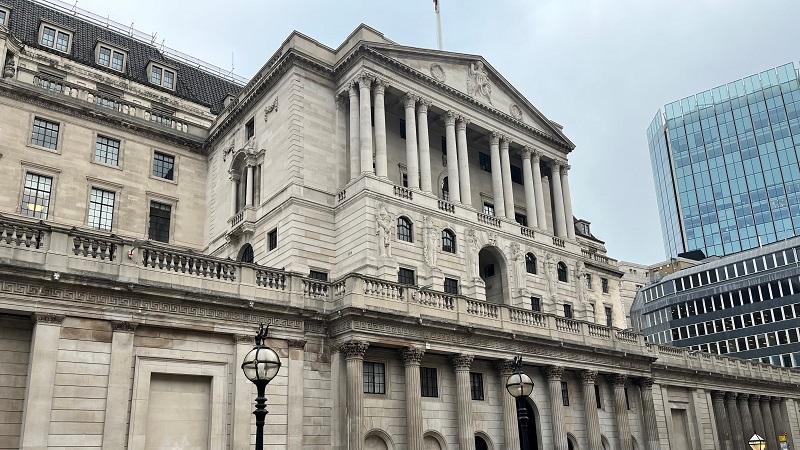Monday 20 March
- – Rightmove UK house price survey
- – German producer price (factor gate) inflation
- – In the US, quarterly results from Foot Locker and Abcam
Tuesday 21 March
- – Full-year results from Staffline, Oxford Nanopore, Henry Boot and Gamma Communications
- – First-half results from YouGov
- – Trading statement from SThree
- – UK government borrowing figures
- – German ZEW economic sentiment survey
- – US existing homes sales
- – In Asia, quarterly results from Geely Automotive
- – In Europe, quarterly results from RWE
- – In the US, quarterly results from Nike and GameStop
Wednesday 22 March
- – Full-year results from Vistry, FeverTree Drinks, Pendragon and Essentra
- – US weekly oil inventories
- – In Asia, quarterly results from TenCent
- – In the US, quarterly results from Winnebago
- – US Federal Reserve policy decision
The failure of Silicon Valley Bank (SVB) has thrown up more questions for the Federal Reserve to consider as its next policy decision approaches. Given the role that higher interest rates have played in putting the squeeze on SVB’s customers, and ultimately the bank itself, AJ Bell’s Russ Mould and Danni Hewson said this coming Wednesday’s decision will make clear just how perturbed officials are by the situation, if indeed they are perturbed at all.
Following February’s hike of 25 basis points, which lifted the Fed Funds Rate to 4.75%, markets hoped for a pause in policy tightening, and then a pivot to rate cuts before year-end. However, Mould and Hewson said Fed chair Jerome Powell’s feisty testimony in early March prompted markets to price in a half-point increase at Wednesday’s meeting, and a peak Fed Funds rate of 5.5% or even 6% later in the year with and no cuts until 2024.
“Expectations are swinging wildly as markets follow events at SVB and then Credit Suisse, but expectations are settling on a 0.25% hike in the Fed Funds rate to 5.00% being the most likely outcome from this meeting,” the pair said.
“Markets also now expect rate cuts down to the 4.25% or even 4.00% level by the end of 2023. Thus, the hoped-for pivot in monetary policy may be coming, albeit not for the reasons markets were expecting, with financial stability and the risk of economic spill-over the issue, rather than cooling inflation and a gentle, soft landing for the economy,” they concluded.
Thursday 23 March
- – Full-year results from Inchcape, Dignity and EnQuest
- – Interest rate decision from the Swiss National Bank
- – Bank of England policy decision
Hot on the heels of the Fed follows the Bank of England announcement. At its last meeting on 2 February the bank’s Monetary Policy Committee approved a half-point increase in the Base Rate, to 4.00%, and maintained the pace of Quantitative Tightening at £80bn a year.
Mould and Hewson noted that governor Andrew Bailey had already started to offer more emollient commentary even before SVB caused wider financial markets to wobble.
The pair from AJ Bell added: “For the moment, markets think the Bank of England will stand pat at 4.00% at its March meeting and then eke out one more quarter-point rise to 4.25% before ending this rate-hiking cycle.
“A first cut back to 4% is the current expectation by year end but, again, how markets take any reversal of policy is now more open to doubt, especially if financial market or banking instability or a deeper-than-expected economic slowdown push policymakers into a corner and oblige them to cut rates even if inflation is proving sticky.”
- – US weekly unemployment claims
- – In Europe, quarterly results from Porsche
- – In the US, quarterly results from Accenture, General Mills, Darden Restaurants and Carnival
Friday 24 March
- – Full-year results from Wickes
- – First-half results from Smiths Group
- – First-half results from JD Wetherspoon
JD Wetherspoon had a solid first quarter, according to Hargreaves Lansdown’s head of equity research, Derren Nathan, but he said this was set against an Omicron-impacted festive season in the prior year. Nathan argued that while customers battle with the ongoing cost-of-living crisis, the comparatives are getting harder, and the hospitality industry is suffering from sharp rises in costs for labour, food, energy and maintenance.
Nathan added: “Investors will look to see if trading deteriorated in the second quarter and whether the group retains its cautious optimism for the rest of the year. Wetherspoon has some scope to raise prices but needs to balance that against alienating its customers.
“The group is also shrinking its pub estate with a view to keeping the best performers and reducing competition between outlets. Investors will be looking out for progress on this front. Disposals will also reduce pressure on the balance sheet. Meanwhile, supply is coming out of the market as smaller pub companies fight for survival. Wetherspoon could come out of this in a stronger position, but the short term remains challenging.”
- – Flash manufacturing purchasing managers’ indices from Asia, Europe, the UK and US
- – UK retail sales
- – Belgian Courbe Synthetique business sentiment survey
- – US consumer durable goods orders
- – In Asia, quarterly results from China Motor, Meituan and Xiaomi
- – In Europe, quarterly results from Deutsche Wohnen










